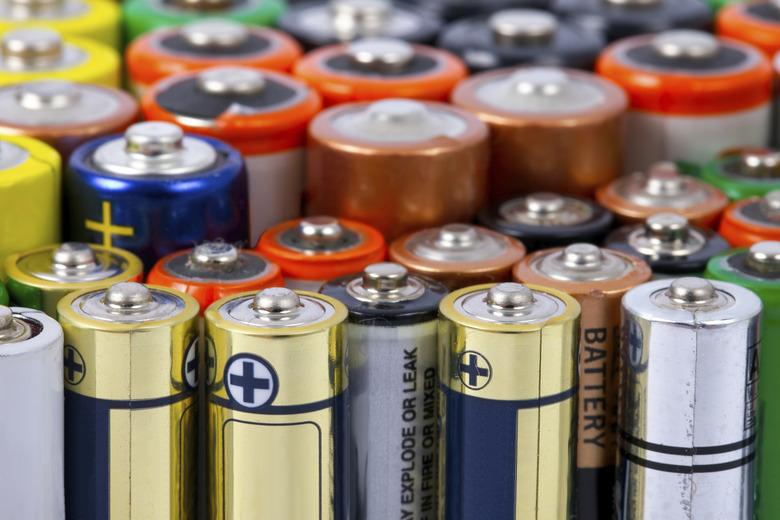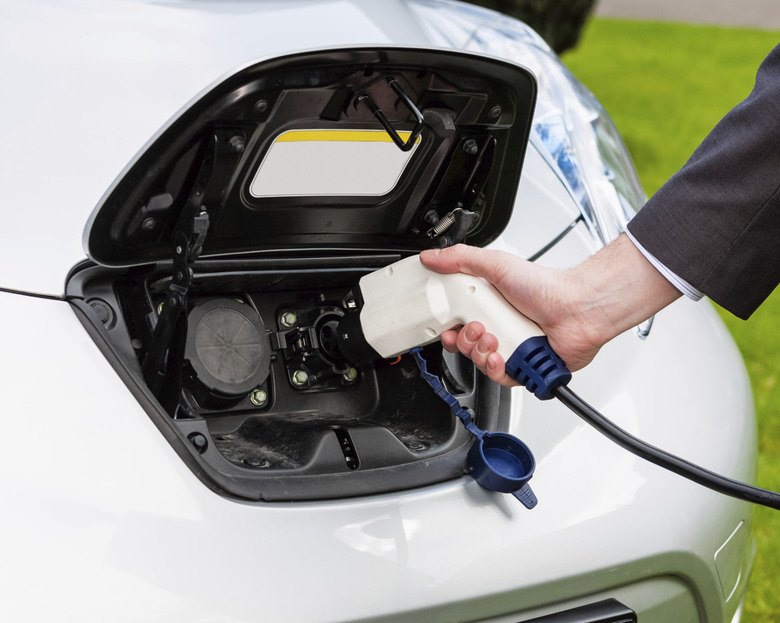How To Calculate Kilowatt Hours
A kilowatt-hour is a basic unit of energy that applies especially to electricity. A watt is a volt times an amp, and there are 1000 watts in a kilowatt. A watt is a unit of power, which is the rate of energy used. When you multiply power by time you get a quantity of energy. Energy is measured in many different unit systems in different applications. Your electric utility company bills you for the kilowatt-hours you use. The energy content of batteries is given in amp-hours. The energy density of liquid fules is often given in British Thermal Units per gallon, or BTUs per gallon. A home gas bill usually reports usage in cubic feet (of gas), or therms. A therm is 100 cubic feet, and equivalent to 1000 BTU. Using the right conversion ratios, you can calculate the equivalent number of kilowatt-hours (KWH) in any amount of of energy measured in these other units. You can use the link in the Resources to calculate conversion ratios.
Kilowatt-hour equivalents
Step 1
Calculate kilowatt-hours in natural gas. To compare the amount you pay for natural gas versus electricity, you need to convert between kilowatt-hours and therms. The conversion ratio is 0.0342 therms / 1 kilowatt-hour = 1. Electricity and natural gas prices vary greatly from region to region, but typical prices are 0.10 dollars per kilowatt-hour and 1 dollar per therm. Calculate (1 dollars / therm)*(0.0342 therm /1 kilowatt-hour) and cancel therms to get 0.0342 dollars/kilowatt-hour. In many places, natural gas is indeed cheaper per unit of energy. This is why, when it is available, many homes use gas for heating and cooking rather than electricity.
Step 2
Calculate kilowatt-hours in a battery. A battery is usually labeled with how many milliamp-hours it has. Amp-hours are not technically a unit of energy. But when you multiply amp-hours by volts, you get watt-hours. There are 1000 watt-hours in a kilowatt-hour. A typical alkaline 1.5 volt AA battery supplies around 2000 milliamp-hours. If you multiply 2000 milliamp-hours x 1.5 volts you find that an alkaline AA battery contains 3 watt-hours, or 0.003 kilowatt-hours of energy. You can purchase AA batteries for as little as fifty cents apiece, or 0.5 dollars. To find the cost per kilowatt-hour, calculate (0.5 dollars / 3 watt-hours) x (1000 watt-hours / kilowatt-hour) = 167 dollars/kilowatt-hour. You can see why rechargeable batteries are good for the environment and your bank account.
Step 3
Calculate kilowatt-hours in gasoline. Gasoline contains about 100,000 BTU of energy per gallon. The conversion ratio between BTU and kilowatt-hours is 3412 BTU / 1 kilowatt-hour = 1. So, gasoline contains (100,000 BTU / gallon) x (1 kilowatt-hour / 3412 BTU) = 29.3 kilowatt-hour/gallon. In 2013, the average price of gasoline was around 3.5 dollars/gallon. Calculate ( 3.5 dollars / 1 gallon ) x (1 gallon / 29.3 kilowatt-hours) = 0.12 dollars / kilowatt-hour. Roughly the same as for household electricity.
Things Needed
- Calculator
- Computer connected to the internet
- Optional:
- Residential gas bill
- Residential electric bill
- Double-A alkaline battery
References
- U.S. Energy Information Administration: Average Retail Price of Electricity to Ultimate Customers by End-Use Sector
- U.S. Energy Information Administration: Natural Gas Prices
- U.S. Energy Information Administration: U.S. Price of Natural Gas Delivered to Residential Consumers
- PowerStream: Discharge tests of AA Batteries, Alkaline and NiMH
- Battery University: Cost of Power
- California Energy Almanac: Gasoline Gallon Equivalents (GGE) for Alternative Fuels
- U.S. Energy Information Administration: Weekly U.S. Regular All Formulations Retail Gasoline Prices
- ConvertUnits.com: Energy unit conversion – SI derived quantity
Cite This Article
MLA
Ph.D., Ariel Balter,. "How To Calculate Kilowatt Hours" sciencing.com, https://www.sciencing.com/calculate-kilowatt-hours-4902973/. 24 April 2017.
APA
Ph.D., Ariel Balter,. (2017, April 24). How To Calculate Kilowatt Hours. sciencing.com. Retrieved from https://www.sciencing.com/calculate-kilowatt-hours-4902973/
Chicago
Ph.D., Ariel Balter,. How To Calculate Kilowatt Hours last modified March 24, 2022. https://www.sciencing.com/calculate-kilowatt-hours-4902973/



